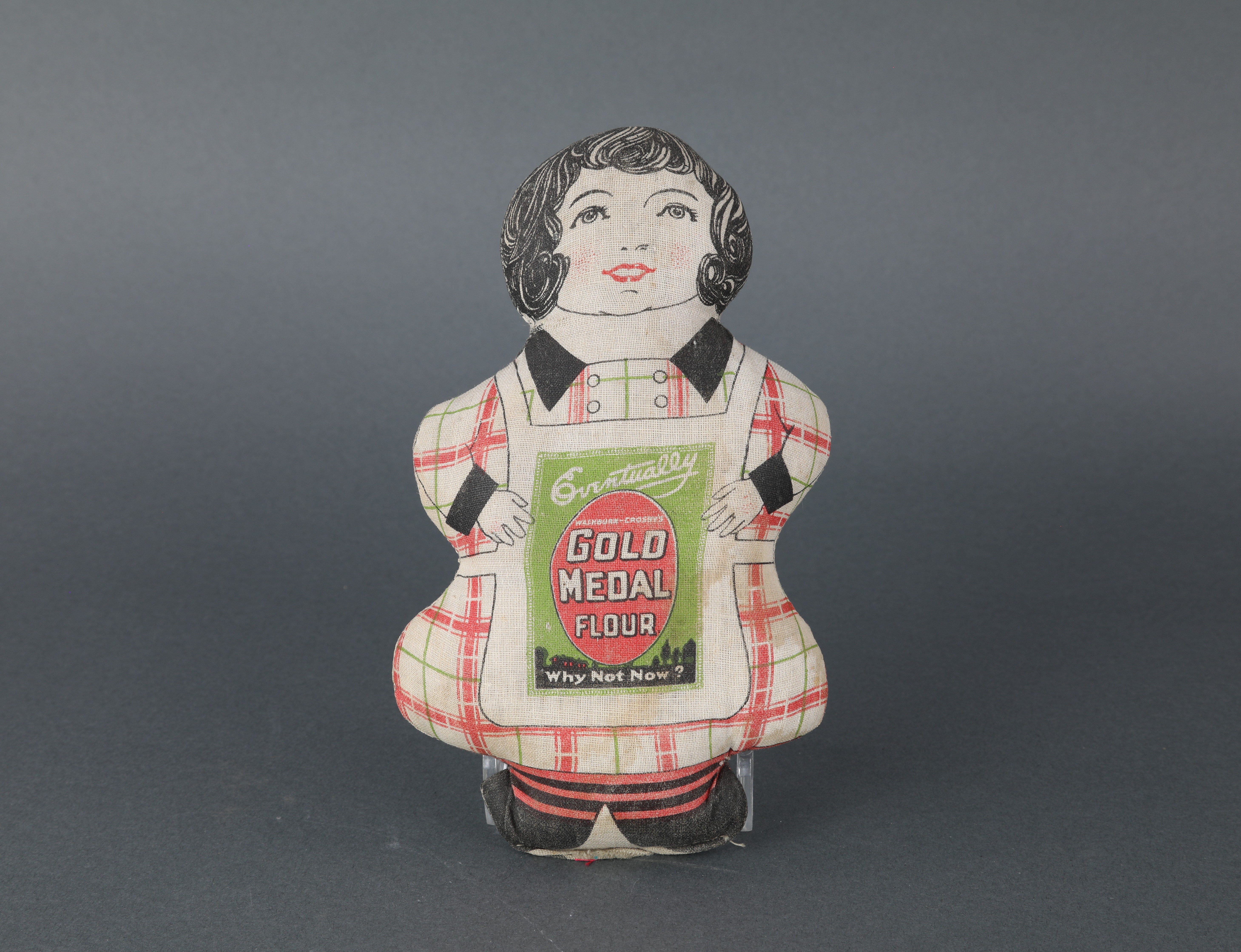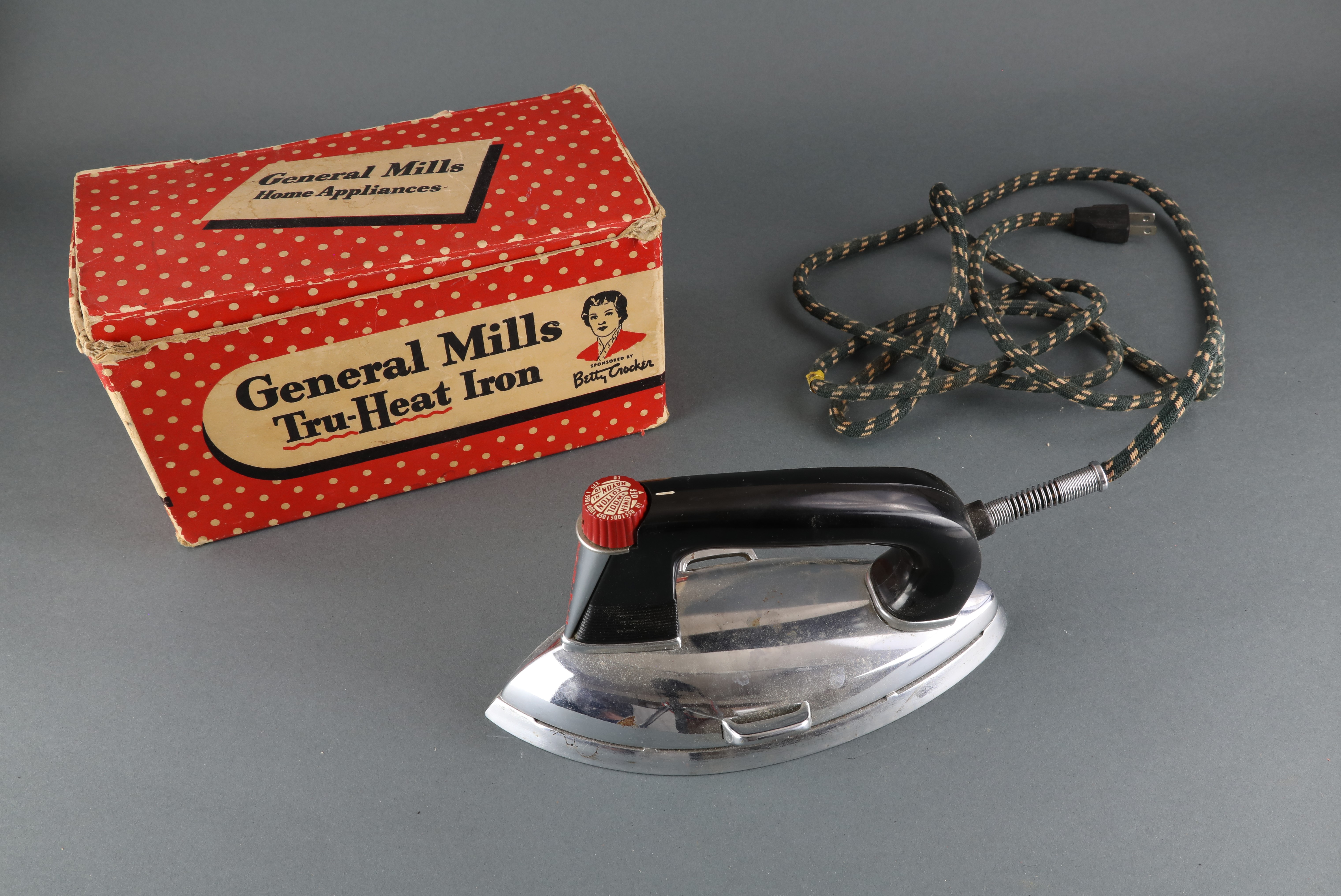December 28, 2018

Image from HHM Collections
Many Americans used to believe Betty Crocker was a real person. This is because her likeness and voice were well publicized throughout the Twentieth Century. Even today, her trademarked signature can be found on products sold by General Mills. Betty Crocker, now a cultural icon, was the perfect housewife. However, the person responsible for popularizing her image was actually a businesswoman.
Marjorie Child Husted was born in 1892 in Minneapolis, Minnesota. In 1913 she graduated from the University of Minnesota after studying home economics. In 1924, Husted started working for the Washburn-Crosby Company, which would become General Mills in 1928. During her time at the company, she went from field representative, to department director, to consultant to company executives and the advertising and public relations departments. Additionally, it was under Husted’s guidance that Betty Crocker rose to national fame while appearing in print ads, radio shows, commercials, cookbooks, and a variety of consumer products.
The fictionalized character we know as Betty Crocker was created in 1921 in an innovative marketing strategy. After receiving an onslaught of written cooking-related inquiries, the Washburn-Crosby Company, started using the name Betty Crocker to respond to these letters. They even created a standardized signature for the character, which can be seen below on these measuring cups in Hennepin History Museum’s collection. Eventually, the character’s likeness was created in 1936. While it has varied over the years, Betty Crocker generally wears a red jacket with a white shirt, has short brown hair, and a gentle expression on her face.

Image from HHM Collections
By 1929, Husted had become director of the Betty Crocker Homemaking Service at General Mills. In the following decades, she worked hard to ensure that Betty Crocker became emblematic of the ideal American housewife, ultimately making the character a celebrity of sorts. Husted even helped give a voice to the icon. The Betty Crocker Cooking School of the Air was a popular national radio show that ran for over 27 years, one of the longest in history. Husted not only wrote the scripts for each show, she provided the voice of Betty Crocker for many years. Husted also researched and organized a series of Betty Crocker cookbooks. Furthermore, Husted facilitated Betty Crocker’s appearance in numerous advertising campaigns. Her image was used to sell a variety of products, most of which were related to cooking and baking. It was even used to sell home appliances, like this iron in the museum’s collection that dates to 1946.

Image from HHM Collections
Today Husted is not as well–known as the brand icon she helped develop, but she did receive recognition and accolades in her lifetime. In 1948, Husted was named Woman of the Year, which was presented by President Harry S. Truman. This marked the first time that award was given to a businesswoman. The following year, Husted was named Advertising Woman of the Year by the Advertising Federation of America. Husted passed away in 1986, leaving behind a legacy of many contributions in the field of home economics, public relations, and advertising. She helped pave the way for women to enter the workplace in the United States, all while popularizing the most idealized and beloved American housewife ever (or never) to exist.
Written by Alyssa Thiede
This publication was made possible in part by the people of Minnesota through a grant funded by an appropriation to the Minnesota Historical Society from the Minnesota Arts and Cultural Heritage Fund. Any views, findings, opinions, conclusions or recommendations expressed in this publication are those of the authors and do not necessarily represent those of the State of Minnesota, the Minnesota Historical Society, or the Minnesota Historic Resources Advisory Committee.

